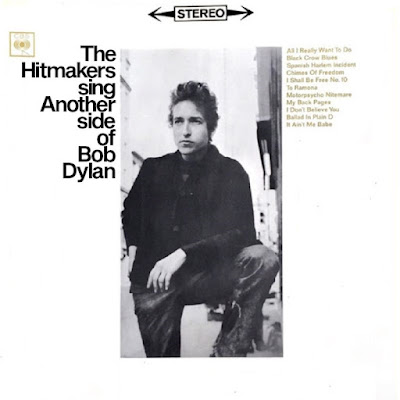David Bowie and Brian Eno were two of music’s most avant-garde figures, and throughout their lifelong friendship they often collaborated, most notably on Bowie's Berlin records. After reuniting at Bowie's 1992 wedding, they started emailing each other about what they felt was missing from music, and in a bid to reignite some artistic bravery that they clearly felt was lacking, they decided to embark on an album together without so much as "a gnat of an idea". They put together a band consisting of Bowie/Eno, Reeves Gabrels, Mike Garson, Erdal Kizilçay & Sterling Campbell, and began recording at Mountain Studios, in Switzerland, and the resulting album was far more fleshed out than its initial beginnings, being a narrative-focused cyberpunk curiosity built largely of interviews the pair conducted with patients at a wing of a Vienna psychiatric hospital, who were well-known for their outsider art. 'The Leon Suites' was a bold attempt to bring more conceptual artistry to the modern album, a bizarre offering that was influenced by murder, Twin Peaks, and hospital interviews. The two musicians put together a three-hour recording consisting of mainly spoken word passages and strange jams, employing the cut-up technique employed by William Burroughs and Brian Gysin, relying on an app Bowie had co-developed, called the Verbasizer. It allowed him to auto-generate random sentences to bulk out tracks or use its words to trigger an idea that formed the shape of a song. Eno was said to hand out cards to backing musicians each morning with their unique backstory, which contained instructions like: "You are the disgruntled member of a South African rock band. Play the notes that were suppressed".
He also used the Oblique Strategies cards that he and artist Peter Schmidt had pioneered in 1975, which involved using a series of prompts on cards drawn only when faced with a creative blockage. Everything was highly improvised and written by Bowie in the studio, and he described what emerged as an almost obsessive interest in ritualistic, outsider artists. He told Vox magazine: "It's like a replacement for a spiritual starvation that's going on, like a tribe with dim memories of what their rituals used to be. They're sort of being dragged back again in this new, mutated, deviant way, with so-called gratuitous sex and violence in popular culture and people cutting bits off themselves. For me, it seems like a natural kind of thing". There were five suites recorded for 'Leon...', but two were deleted, with three receiving a final mix and then being presented to the record company for release, but they were not as forward-thinking as Bowie, and rejected the project as being too uncommercial. He therefore scrapped the whole thing and started work on something that the record company would accept, with snippets from 'The Leon Suites', including some of its narrative arcs and characters, ending up appearing on his 1995 album '1. Outside'. Although these tracks are often touted as 'Outside' outtakes, its more true to say that 'Outside' was based on outtakes from 'The Leon Suites', which was an album in its own right, and if the record company had accepted this as Bowie's next album, then '1. Outside' would never have happened. It's great that we can now get to hear these tracks, in the best quality so far, as these come from a CDR provided by Adam Bedstroke, and so thanks to him for letting these demos be shared amongst fans.
Track listing
01 Suite 1: I Am With Name
02 Suite 2: Leon Takes Us Outside
03 Suite 3: Enemy Is Fragile












